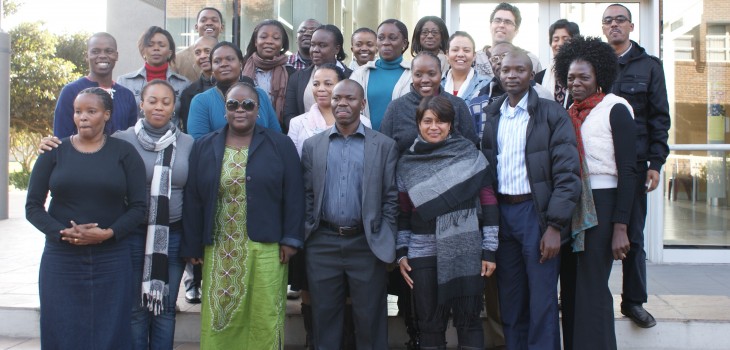By Marsha Orgill
Is there enough individual as well as organisational capacity to help develop the field of health policy and systems research and analysis (HPSR+A) in Africa?
To begin to address this question, the Consortium for Health Policy and Systems Analysis in Africa (CHEPSAA) set out to explore individual as well as organisational health policy and systems research and analysis (HPSR+A), capacity assets and needs in 7 African universities. The results were published last month.
From an Emerging Leader perspective, we pulled out some key lessons from the CHEPSAA findings, that could help emerging leaders build this field in the future.
First, recognising the exsiting assets in your organisation is important. Working in an institution that has a vision for HPSR+A helps drive its development – so work towards developing this vision and make sure your work is aligned to the broader institutional vision. Working with expert champions is also invaluable – they provide opportunities for participating in collaborative research and provide opportunities to practice teaching. Both are really important in getting the necessary experience you need to be an academic. Make the most of being part of a larger university system – there may be funded internal courses, access to publications and good library assistance, if available, these support structures really can help with relieving the administrative burden of your job. Following the existing quality approval processes will enhance your research and teaching. Finally, find and stay connected to local and international teaching and research networks to help you develop your skills, understandings and experience – as well as the capacities of your organisation.
Second, while there may be assets, be sure to recognise the challenges that you will face as an emerging leader in HPSR+A. Organisations continue to have challenges and needs in developing HPSR, some of which have direct influence on the demands and opportunities for those at an early stage of their careers in academic environments. In particular there is still a shortage of dedicated resources for HPSR+A work, in some cases governments do fund teaching posts but most research is still funded externally. Thus there is a lack of established and funded posts for HPSR+A (partly because there is a lack of clear HPSR+A pathways in universities). National governments are hardly setting the HPSR agenda and are not funding research at home. Emerging leaders in fact are also part of the challenge as we are highly mobile and often don’t stick around long enough for meaningful succession planning – this results in overburdened senior staff and essentially means there is nobody to build the field in your institution later.
Third, what can emerging leaders do to help build the field?
Emerging leaders in HPSR can assist in developing the field by actively targeting both government and external grant funding for teaching and research. Present your work in a way that helps policymakers and practitioners find value in the multi- and inter- disciplinary evidence we bring. As your career progresses and your personal and organisational assets increase (technical skills, curricula; joint research opportunities etc.) share these opportunities with others. Start conversations in your universities about career paths for health policy and systems analysts within universities and governments and start consolidating HPSR+A-specific staff development opportunities within your organisation in pursuit of that goal.
So, how will you be part of the solution?
Marsha Orgill is a Researcher and Lecturer at the School of Public Health and Family Medicine, University of Cape Town











